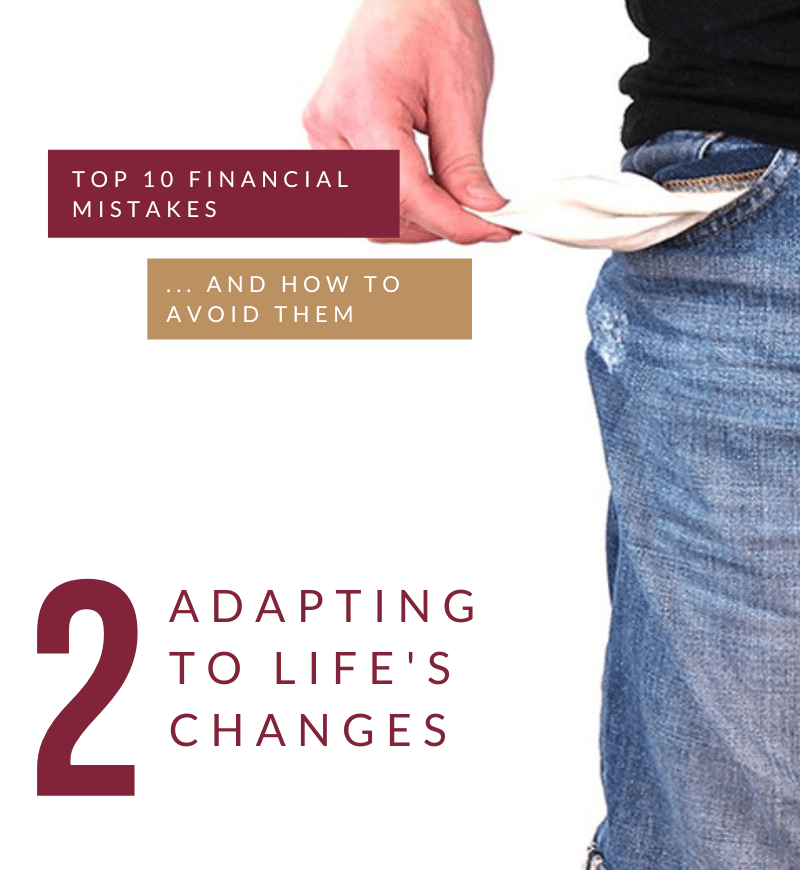“There is nothing permanent except change.” -Heraclitus
I’ve found over the years that people believe just the opposite – that things are permanent. The car will run forever… I’ll always be healthy… My job is secure… We all know that nothing is “for sure” in this world, so why do so many people refuse to plan for it? I actually had someone tell me once that they didn’t believe in having a rainy-day fund because they were certain that it would bring “rainy days.”
One of the biggest financial mistakes you can make is not having an emergency fund. This is money that you can get your hands on easily to cover things like unexpected auto repairs or to live off of in the event you are laid off your job. Unforeseen life changes. Without this type of fund, if something happens, you’ll likely have to borrow the money to cover the expense.
The emergency fund is the foundation to a successful financial future. We advise that most people have between 90 days and 6 months living expenses set aside for an emergency. For young people, your first financial goal should be getting your emergency fund fully funded. It’s a big mistake to not do so.
You need to remember that your financial plan is a fluid document. It is not cast in stone and was not brought down off the mountain by Moses. Life changes, and I’m a perfect example:
After fifteen years of unsuccessful attempts and treatments to have a second child, my wife and I figured that we would be empty nesters in three years when our son graduated high school and took off to college. Then one beautiful October evening I came home from work and my wife hit me with, “I’m pregnant!” The first word out of my mouth was, “unbelievable.”
We had recently set our financial course with goals based on one child, through college; plans to have the house paid off by age sixty-two and me retiring soon thereafter. Well, at age forty-two, now all of that had changed. Our new addition wouldn’t be out of college until I am sixty-four at best. Funds that were once available to pay down the mortgage now must be allocated to diapers, food, school supplies, extracurriculars and a college fund, so the goal of paying off the house and me retiring around then were now needing to be pushed back.
I’m a prime example of the fact that you never know what life is going to throw at you. Flexibility and adaptability in your plan is critical. Once you have implemented your financial plan, don’t just put in in your desk drawer to collect dust. Periodically review it to see if any adjustments need to be made. Additionally, in the event of unforeseen life events, get it out and see what effect, if any, those events have on your long-term financial goals.
These are the opinions of Legacy Wealth Management, LLC and not necessarily those of Cambridge, are for informational purposes only, and should not be construed or acted upon as individualized investment advice.
Mike Berry is a Registered Representative offering securities through Cambridge Investment Research, Inc., a Broker/Dealer, Member FINRA/SIPC. Investment Advisor Representative, Cambridge Investment Research Advisors, Inc., a Registered Investment Advisor. Legacy Wealth Management, LLC and Cambridge are not affiliated. Cambridge does not offer tax advice.
Copyright ©2022 Mike Berry. All Rights reserved. Commercial copying, duplication or reproduction is prohibited.

